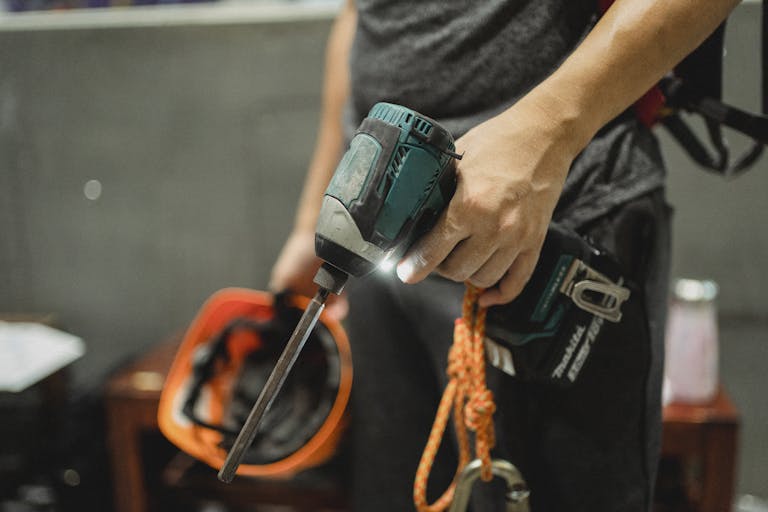Getting a Builders Insurance Quote: What to Prepare
A practical guide to gathering the right details before requesting a builders insurance quote in Australia.
When it comes to protecting your construction business, insurance is one of the most important tools in your kit. But before you rush to request a quote, it pays to be prepared. Builders insurance isn’t a one-size-fits-all product—so to get the most accurate quote (and the best value), you’ll need to provide some specific details about your business.
Whether you’re a solo tradie or running a growing team, this guide will help you understand:
- What insurers need to know
- What information to prepare before requesting a quote
- How to avoid delays or underinsurance
- Tips to make the process smoother and more affordable
🛠 Why Preparation Matters
Most builders don’t realise that quoting isn’t just about entering a few numbers into a form. Insurance providers assess risk, and to do that properly, they need to understand your day-to-day operations.
That includes the types of jobs you take on, your annual turnover, how many people you work with, where your tools are kept, and whether you’ve had previous claims.
The more accurate your information, the more tailored—and competitive—your quote will be. Better still, it helps ensure you don’t end up underinsured, or worse, with a policy that won’t pay out when you need it most.
📋 What to Prepare Before Requesting a Quote
Here’s a breakdown of the key information and documents to gather before reaching out to an insurer or broker:
1. Your Business Information
This includes basic details that help define who you are and what you do.
- ABN and registered business name
- Business structure (sole trader, company, partnership)
- Years in operation
- Trades/services provided (e.g. carpentry, roofing, concreting, electrical)
- Builder’s license number (if applicable)
- List of current and past projects
- Claims history (if any)
- Asset schedule (tools, vehicles etc)
- Previous insurance policy documents
This helps insurers determine the scale and risk profile of your operations.
2. Project Details
What kind of work you take on will heavily influence the type and level of cover you need.
- Types of projects (residential, commercial, renovations, new builds)
- Average and maximum job values
- Project duration and complexity
- Job locations—rural vs metro, high-risk regions, etc.
- Number of projects running at the same time
Insurers use this data to estimate your exposure and coverage limits.
3. Annual Turnover
Many policies are priced based on your revenue, so be prepared to provide:
- Last financial year’s turnover (actual or estimated)
- Current year’s projected turnover
Higher turnover often means greater exposure to risk, so be accurate and conservative with your estimates.
4. People You Work With
Who works for you—and how—can change your legal obligations and risk exposure.
- Number of employees
- Use of subcontractors (and whether you want them covered)
- Apprentices or trainees
- Labour hire or casual staff
If you employ people, workers compensation insurance is mandatory in every state.
5. Tools, Equipment & Assets
Your tools are the backbone of your trade. Insurers will need to know:
- Total replacement value of tools and portable equipment
- Where tools are stored (e.g. locked vehicle, on-site, secure facility)
- Do you require cover for tools in transit or on job sites?
- Any trailers, machinery, or commercial vehicles to be included
Providing a rough inventory or spreadsheet of major items can speed things up.
6. Your Insurance History
Insurers will ask about:
- Existing or previous policies
- Claims made in the last 5 years
- Any previous policy cancellations or declined applications
Don’t worry if you’ve made claims—it doesn’t disqualify you. But being honest about your history builds trust and ensures accurate pricing.
7. Licences, Certificates & Safety Procedures
Some insurers may ask for copies of:
- Builder or trade licences
- Industry certifications
- Risk management procedures or OH&S policies
- Safety training records
This information helps demonstrate your professionalism and can sometimes lower your premium if you’re seen as a lower-risk operator.
🧠 Bonus Tips for a Smooth Quoting Process
Here are a few extra tips to help you save time, avoid stress, and get better results:
✔️ Be specific with job types
If you focus on renovations, extensions, or commercial fit-outs, let the broker know. Not all construction work carries the same risk.
✔️ Ask about bundled policies
Most builders benefit from combining multiple covers—like public liability, tools, and contract works—under one policy. This often leads to discounts and easier renewals.
✔️ Update your info annually
Even if your policy auto-renews, your business probably changes year to year. Keep your details up to date to ensure ongoing protection.
✔️ Use a construction insurance broker
General insurers don’t always understand the risks involved in building. A specialist broker can help tailor your policy, flag compliance issues, and often secure better rates.
📞 Need a Hand? Talk to Sirius Insurance
Not sure where to start?
Contact Sirius Insurance—your trusted insurance broker who specialises in building insurance.
Our team will:
- Help you gather the right details
- Compare quotes from multiple providers
- Customise your cover to suit your projects and people
- Make sure you’re fully compliant with state laws
- Save you hours of admin and back-and-forth
👉 Reach out to Sirius Insurance today and get a quote you can trust.
Final Word
Preparing for a builders insurance quote isn’t difficult—it just takes a few minutes of planning. With the right information at your fingertips, you’ll avoid delays, reduce your premium, and get peace of mind knowing your policy actually covers what matters.
Whether you’re just starting out or scaling your construction business, make insurance part of your business toolkit—and make sure it’s done right.





